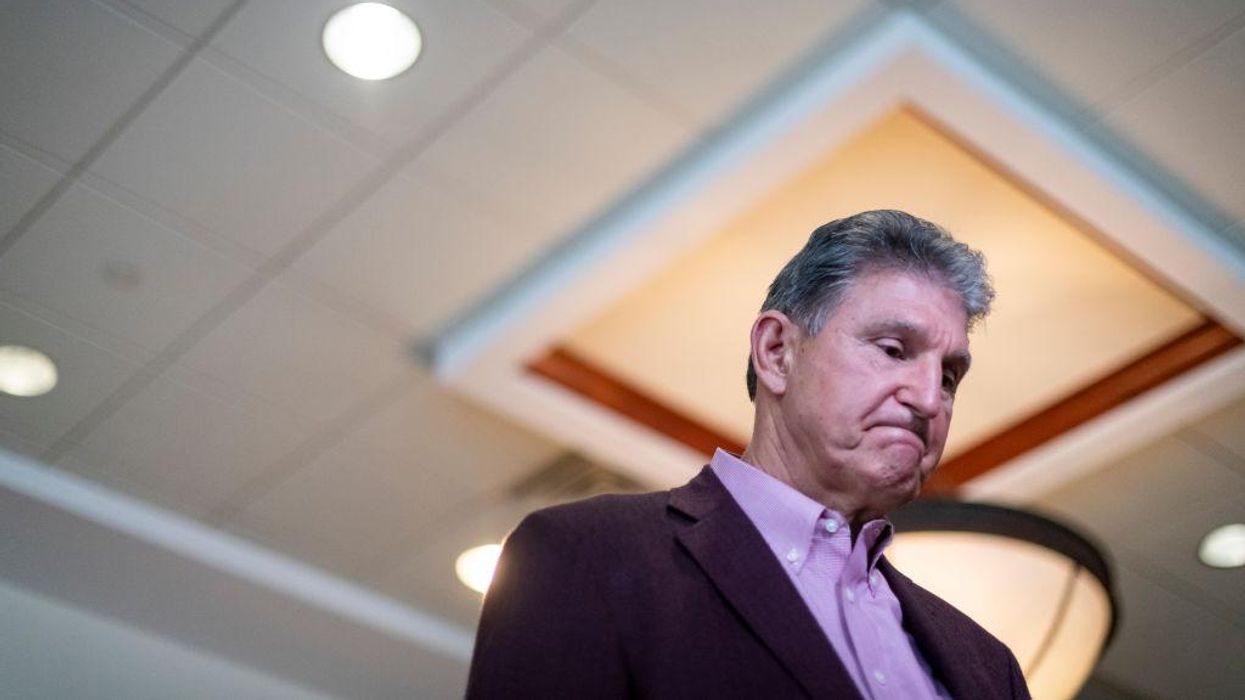When Sen. Joe Manchin announced Sunday he would not vote in favor of the For the People Act, he dealt another critical blow to his party's sweeping election overhaul legislation. But reformers haven't given up hope.
Manchin put the focus squarely on the partisan divide: Democrats are pushing the legislation without any support from Republicans.
"Unfortunately, we now are witnessing that the fundamental right to vote has itself become overtly politicized," Manchin wrote in an op-ed for the Charleston Gazette-Mail. "As such, congressional action on federal voting rights legislation must be the result of both Democrats and Republicans coming together to find a pathway forward or we risk further dividing and destroying the republic we swore to protect and defend as elected officials."
Democracy reform advocates lambasted Manchin for focusing on the legislative process, rather than the substance of the bill. While his opposition creates a huge barrier for their cause, advocates remain determined to get the For the People Act across the finish line.
From the start, it was clear the For the People Act had little chance of getting support from 10 Republicans to help clear the 60-vote procedural threshold in the Senate. So Manchin's support was critical to passing the legislation on a party-line vote, if the filibuster could be somehow circumvented.
However, on Sunday, Manchin affirmed his stance on the filibuster, saying he would not vote to weaken or eliminate it the procedural move designed to protect the rights of the minority party. He expressed concern that doing so would only exacerbate the partisan dysfunction in Congress.
"I have always said, 'If I can't go home and explain it, I can't vote for it.' And I cannot explain strictly partisan election reform or blowing up the Senate rules to expedite one party's agenda," Manchin wrote in an op-ed for the Charleston Gazette-Mail.
Democracy reform advocates agree that it would be preferable to pass the For the People Act with Republican support, but argue Manchin shouldn't allow the desire for bipartisanship to block critical voting rights legislation.
"When Sen. Manchin comes to the realization that Republicans in the Senate are not acting in good faith, he is going to have to make a decision about whether he is truly committed to protecting everyone's freedom to vote — because that fundamental right is under attack across the country," said Tiffany Muller, president of End Citizens United and Let America Vote Action Fund, in a statement on Sunday.
An April poll conducted by Global Strategy Group and ALG Research for End Citizens United found that 79 percent of West Virginians overall, including three-quarters of Republicans in the state, supported the For the People Act.
Advocates also point out that historic, critical reforms were not always achieved in a bipartisan manner. Both the 14th and 15th amendments, which granted citizenship to everyone born or naturalized in the United States and gave African American men the right to vote, were passed on party-line votes.
Over the next few weeks, democracy reform groups will keep the pressure on Manchin and others in the Senate to pass the For the People Act. Majority Leader Chuck Schumer said he plans on bringing the legislation to the chamber floor later this month.
On Monday, Democratic Sen. Amy Klobuchar of Minnesota, who chairs the Rules and Administration Committee, reiterated her commitment to getting voting, ethics and campaign finance reforms passed in the Senate.
As Republican state lawmakers continue to push restrictive voting measures across the country, the call for nationwide election reforms has gotten louder and more urgent. Many advocates saw the blocking of the Jan. 6 investigative commission as an inflection point that could finally force Senate Democrats to nix the filibuster.
Fix Our Senate, a coalition of organizations that support eliminating the filibuster, underscored how time sensitive these issues are with the midterm elections quickly approaching and states soon to redraw election maps for the next decade.
"Republican governors and legislatures aren't waiting for Democrats' permission when they attack voting rights in states across the country, and there is no reason for Democrats to wait for Republicans' permission to fight back and protect voters," spokesperson Eli Zupnick said. "Very soon Sen. Manchin is going to have to choose between protecting the right to vote in America or preserving the 'Jim Crow relic' of the filibuster — there is no third option."
Although Manchin's recent announcement was not the news that reform advocates were hoping for, Aaron Scherb, director of legislative affairs for Common Cause, said it won't stop his organization from continuing to "fight to save our democracy and protect our freedom to vote."
He added that it's possible Manchin could change his mind or that his position could evolve in the coming weeks. "I think he certainly has a decision to make for what side of history he wants to be on," Scherb said.




















